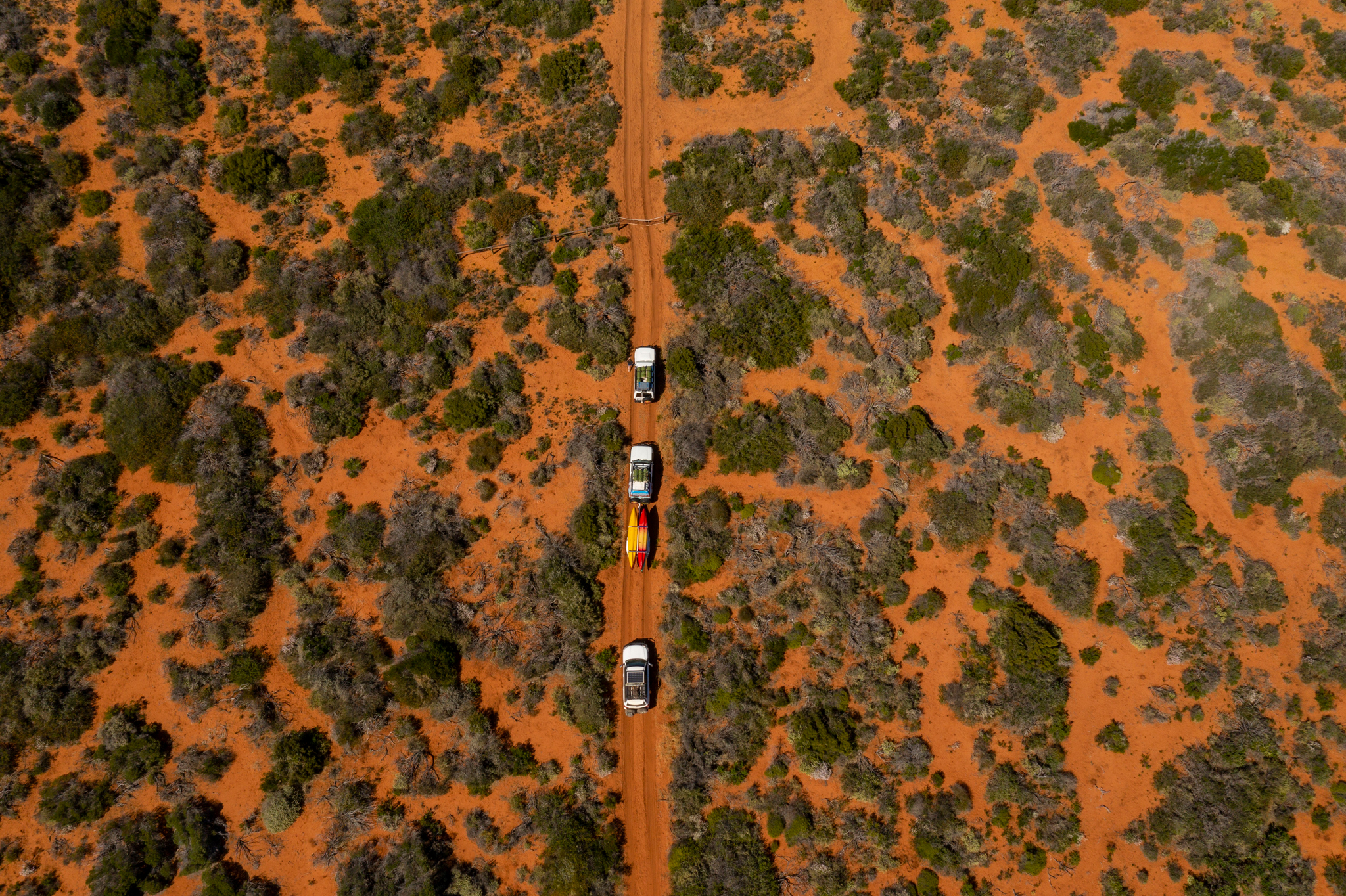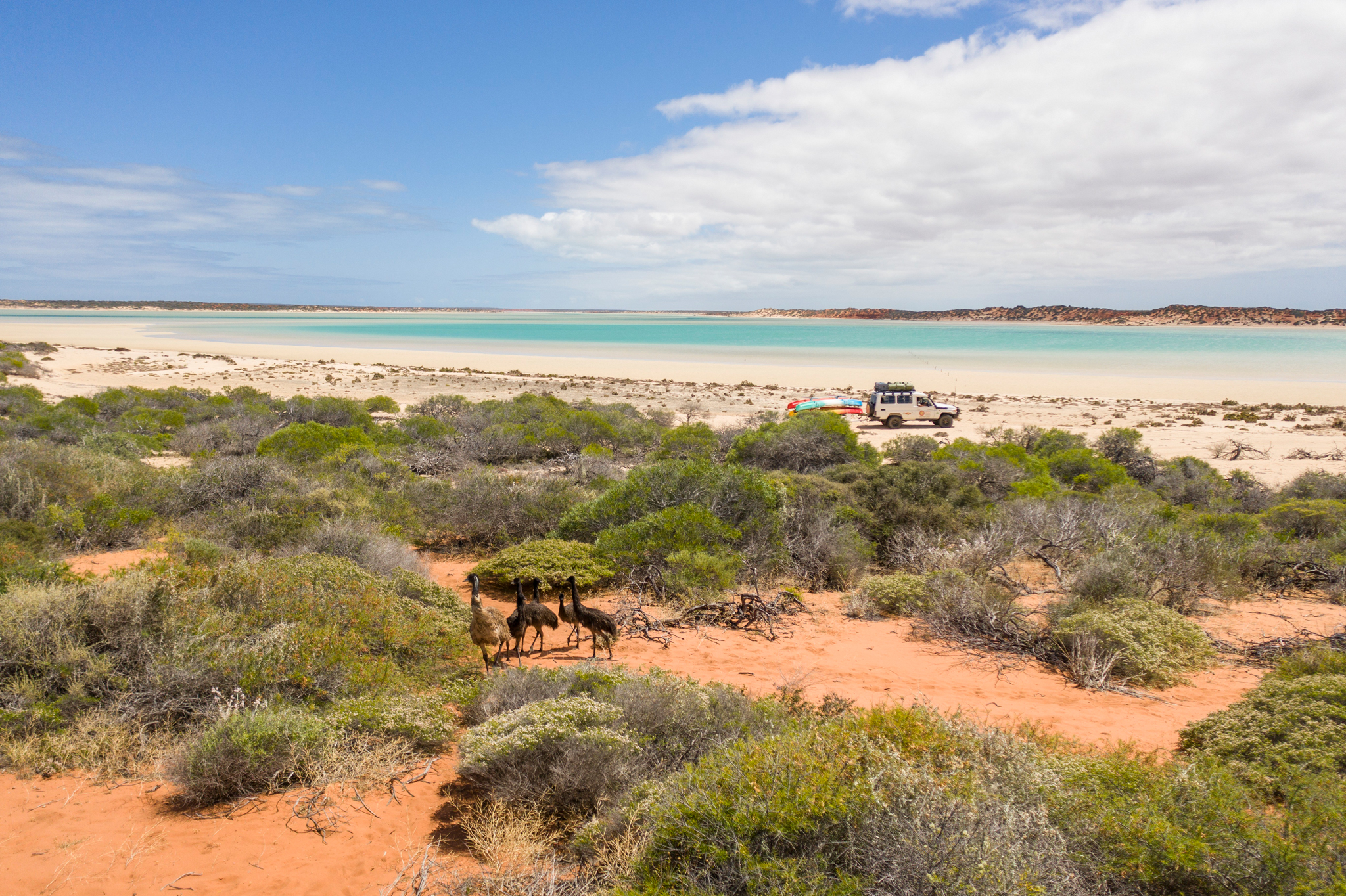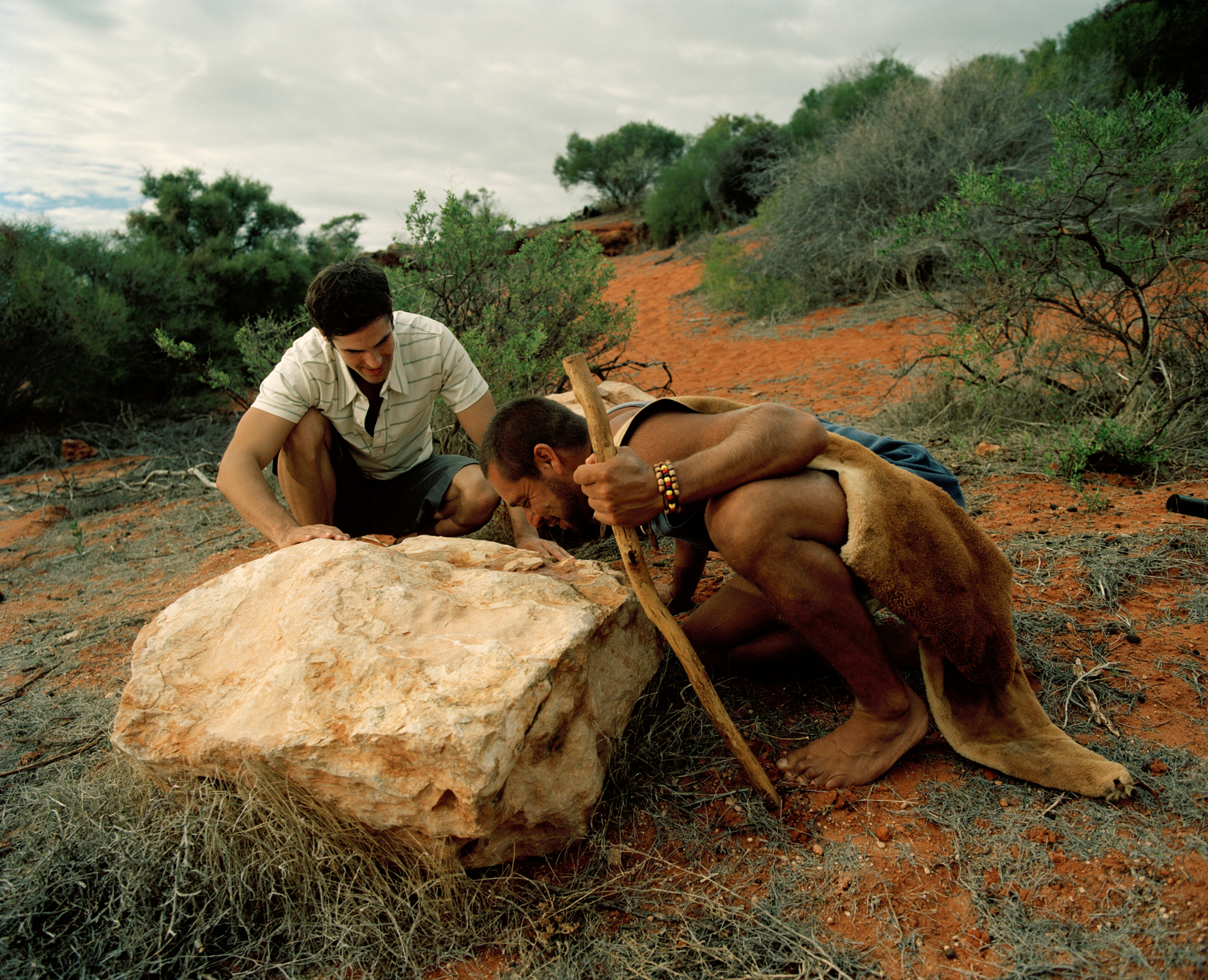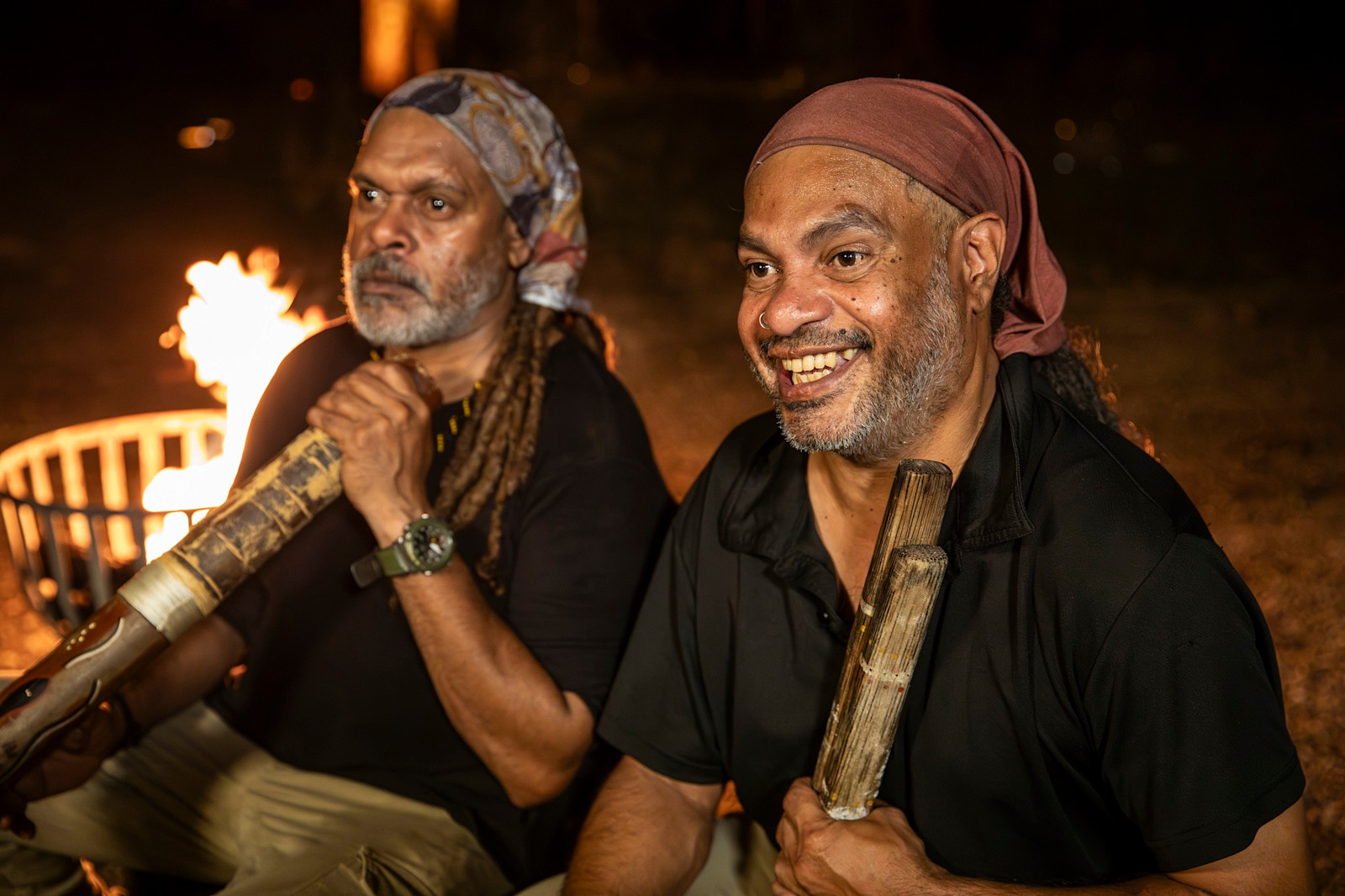Look, listen, smell: How to really explore World Heritage-listed Shark Bay
Darren ‘Capes’ Capewell loves to show the world his Country – Gutharraguda (Shark Bay) on Western Australia’s magnificent Coral Coast.

Wula Gura Nyinda Eco Cultural Adventures, Shark Bay, WA © Tourism Australia
We’ve barely ventured into the Francois Peron National Park when an emu halts our progress. Against pindan red sand, a colour synonymous with the north of Western Australia, the emu parades in front of us with her chicks. There’s a flurry of excitement as our guide, Darren ‘Capes’ Capewell explains they’re likely just six weeks old – and the adult, which we all assume is the mother, is actually the father.
We’re with Capes on one of his Wula Gura Nyinda Eco Cultural Adventures tours, exploring Gutharraguda (meaning ‘two waters’), the Malgana name for Shark Bay, a World Heritage site around 800 kilometres (500 miles) north of Perth/Boorloo.

Wula Gura Nyinda Eco Cultural Adventures, Shark Bay, WA © Tourism Australia
Adventuring with all the senses
As we bounce along the red unsealed road that spears the Peron Peninsula, Capes, a Malgana and Nhanda man, says that Wula Gura Nyinda combines his great passions of culture and Country and is a way to keep his language alive. As we drive, he speaks loudly in language, sometimes rising to a call through the open window. “To our ancestors, to let them know we’re here,” he says with a smile.
Capes reminds us constantly to “look, listen and smell”. Our encounters throughout the day are a reminder that most of us are not exposed to the natural world daily, and that we fail to notice much. Being with a guide, so connected to his ancestral Country, provides profound insights. “Up ahead,” Capes says at one point, before pulling up and sitting back a moment. We scan the red road and the bush. “Tawny frogmouth [an owl-like native Australian bird] up there on the nest,” he says. Again, we scan. He points, saying, “You see that branch?” I do, as the branch moves ever so slightly; the nocturnal creature is a master of camouflage.

Wula Gura Nyinda Eco Cultural Adventures, Shark Bay, WA © Tourism Australia
Tuning into nature
On a dune above a sheltered bay, Capes gestures towards the ocean and talks of the seagrass and its importance to Gutharraguda. There’s 4500 square kilometres (1737 square miles) of it supporting the precious marine ecosystem here and it’s vital for the wildlife, which includes dugongs, dolphins, loggerhead turtles and abundant birdlife. There’s a meeting of Aboriginal respect for Country and science as Capes explains that up to 30 per cent of the seagrass has been lost due to environmental factors and discusses the successful efforts by the University of Western Australia to replant and rejuvenate the species.
As he stops to collect saltbush – an edible coastal herb – and sandalwood nuts, Capes likens Country to “one big supermarket”, with one essential proviso: “When nature is talking, we are listening. If you understand how nature can talk, then you know where to find food medicine and water.”
On a deserted beach where vivid red cliffs meet a brilliant white strip of beach, Capes leads our small group to rock pools. He prises native oysters from the rocks and opens them: we gladly slurp them, the intense saline hit a taste of the coast and its traditional food. Taking dry driftwood and scrub, Capes builds a small fire – forbidden to all but Traditional Aboriginal Owners – and gently cooks the remaining oysters while we take the plunge into the gentle Indian Ocean waves.










